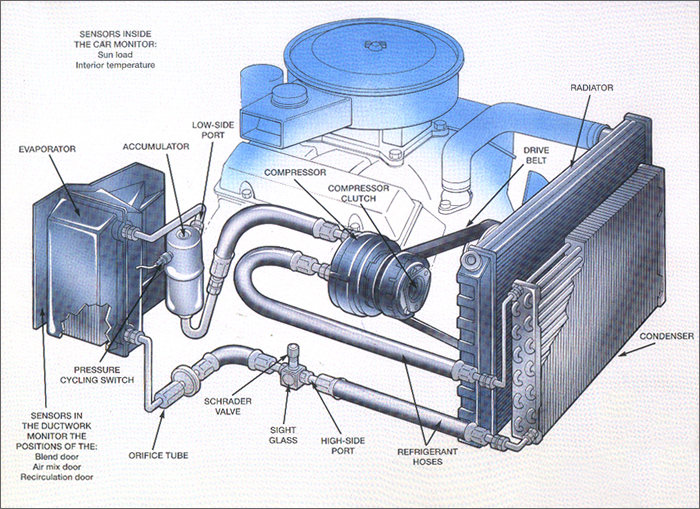Beat the Heat: Your Car AC Service Guide
Is your car’s air conditioning blowing hot air instead of a refreshing breeze? Don’t sweat it! Understanding your car’s air conditioning system and its maintenance is key to staying comfortable on the road, especially during scorching summer days. This guide will walk you through everything you need to know about car air conditioning service, from basic maintenance to troubleshooting common problems.
A vehicle’s air conditioning system is more than just a luxury; it’s a vital component for comfort and safety, particularly in extreme temperatures. Over time, these systems can experience wear and tear, leading to decreased performance or complete failure. Regular car AC service is essential to prevent costly repairs and ensure optimal cooling efficiency.
Automotive air conditioning systems have been around since the late 1930s, initially appearing in luxury vehicles. Early systems were bulky and less efficient than modern designs. Today, nearly every car features a climate control system designed for optimal cooling and heating, incorporating advanced technologies like automatic temperature control and zone climate control.
The importance of a functioning auto AC unit can’t be overstated. It keeps the cabin at a comfortable temperature, preventing heat exhaustion and improving driver alertness. A well-maintained car AC system also helps to dehumidify the air, preventing fogging and improving visibility during humid conditions. Ignoring AC problems can lead to more extensive and expensive repairs down the road.
Common issues that plague automotive cooling systems include refrigerant leaks, compressor failures, clogged condenser fins, and electrical problems. Identifying these issues early is crucial to minimizing repair costs and preventing further damage to the system. Regular maintenance, such as annual inspections and refrigerant top-ups, can significantly extend the lifespan of your car’s AC unit.
One key component is the refrigerant, a special fluid that absorbs heat and cools the air. Another vital part is the compressor, which compresses the refrigerant and circulates it through the system. The condenser, located at the front of the car, releases heat absorbed by the refrigerant. Finally, the evaporator, located inside the dashboard, absorbs heat from the cabin air, cooling it down before it's blown into the vehicle.
Benefit 1: Improved Comfort. A functioning AC keeps you comfortable, especially during hot weather, reducing fatigue and improving focus while driving. Example: Imagine a long road trip on a hot summer day. A working AC system makes the journey significantly more pleasant.
Benefit 2: Enhanced Safety. A cool cabin helps prevent heatstroke and improves alertness, leading to safer driving. Example: Driving while overheated can impair your reactions, increasing the risk of accidents.
Benefit 3: Increased Resale Value. A well-maintained AC system is an attractive feature for potential buyers, increasing the resale value of your vehicle. Example: When selling your car, a functioning AC unit can be a significant selling point.
Action Plan: Get your car AC system inspected annually by a qualified technician. Check for leaks, ensure proper refrigerant levels, and have the compressor and other components inspected for wear and tear. Example: Scheduling an AC check-up during your regular car maintenance can prevent unexpected breakdowns and costly repairs.
Advantages and Disadvantages of Regular Car AC Service
| Advantages | Disadvantages |
|---|---|
| Extended AC lifespan | Cost of service |
| Improved fuel efficiency (less strain on the engine) | Time commitment for service |
Best Practice 1: Regular Inspections. Have your car's AC system inspected at least once a year, preferably before the start of summer.
Best Practice 2: Refrigerant Top-up. Ensure the refrigerant level is maintained to the manufacturer's specifications.
Best Practice 3: Cabin Filter Replacement. Replace the cabin air filter regularly to improve air quality and prevent clogging.
Best Practice 4: Check for Leaks. Be vigilant about any signs of refrigerant leaks, such as unusual smells or reduced cooling performance.
Best Practice 5: Professional Service. Seek professional help for any major repairs or complex issues.
FAQ 1: How often should I service my car's AC? Answer: At least once a year.
FAQ 2: What are the signs of a failing AC compressor? Answer: Loud noises, reduced cooling performance, and warm air blowing from the vents.
Tips and Tricks: Park in the shade whenever possible to reduce the strain on your AC system. Run the AC for a few minutes every month, even during winter, to keep the seals lubricated and prevent leaks.
In conclusion, a well-maintained car air conditioning system is essential for comfort, safety, and the overall value of your vehicle. Regular car AC service ensures optimal performance, preventing costly repairs and extending the life of your AC unit. By following the best practices outlined in this guide and being proactive about maintenance, you can enjoy a comfortable and refreshing driving experience, no matter the weather. Don’t let a faulty AC system ruin your summer drives. Take control of your car’s climate and schedule an AC check-up today! Investing in preventative maintenance now will save you money and hassle in the long run, ensuring a cool and comfortable ride for years to come. Remember, a comfortable driver is a safer driver, and a well-maintained car is a happy car.
Exploring the current time in paris france
Unraveling the mystery of shadow bonnie in fnaf world adventure
Unlocking the power of the hie hie no mi a king legacy guide














